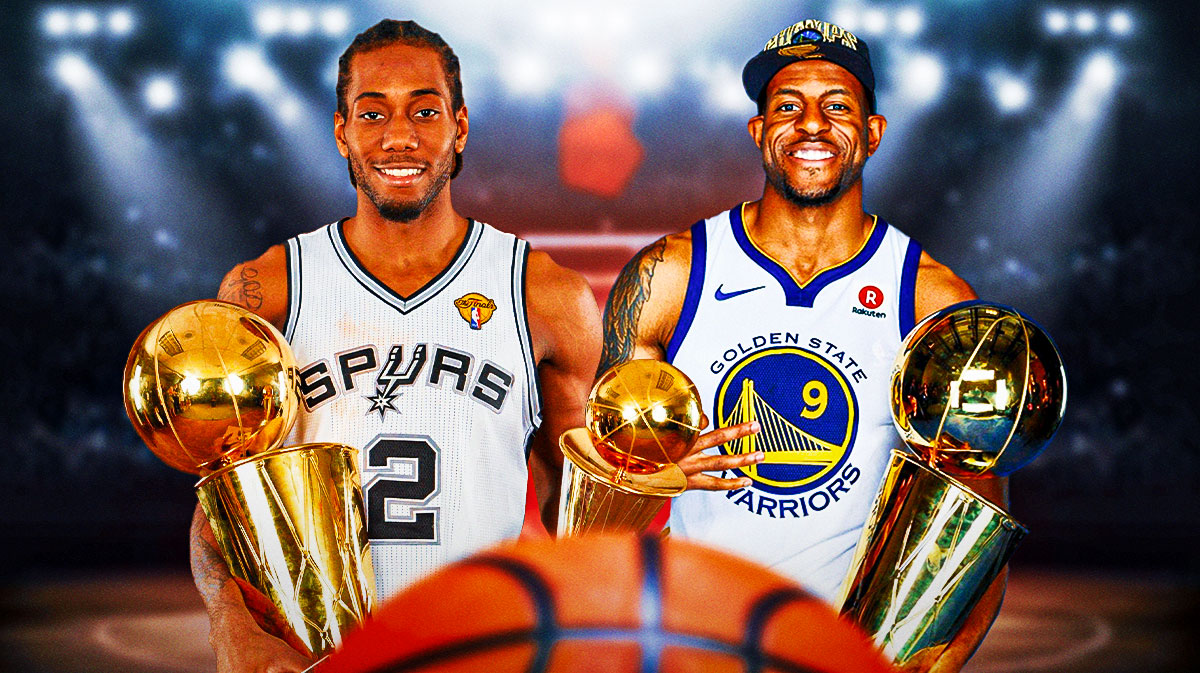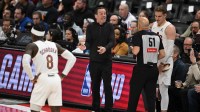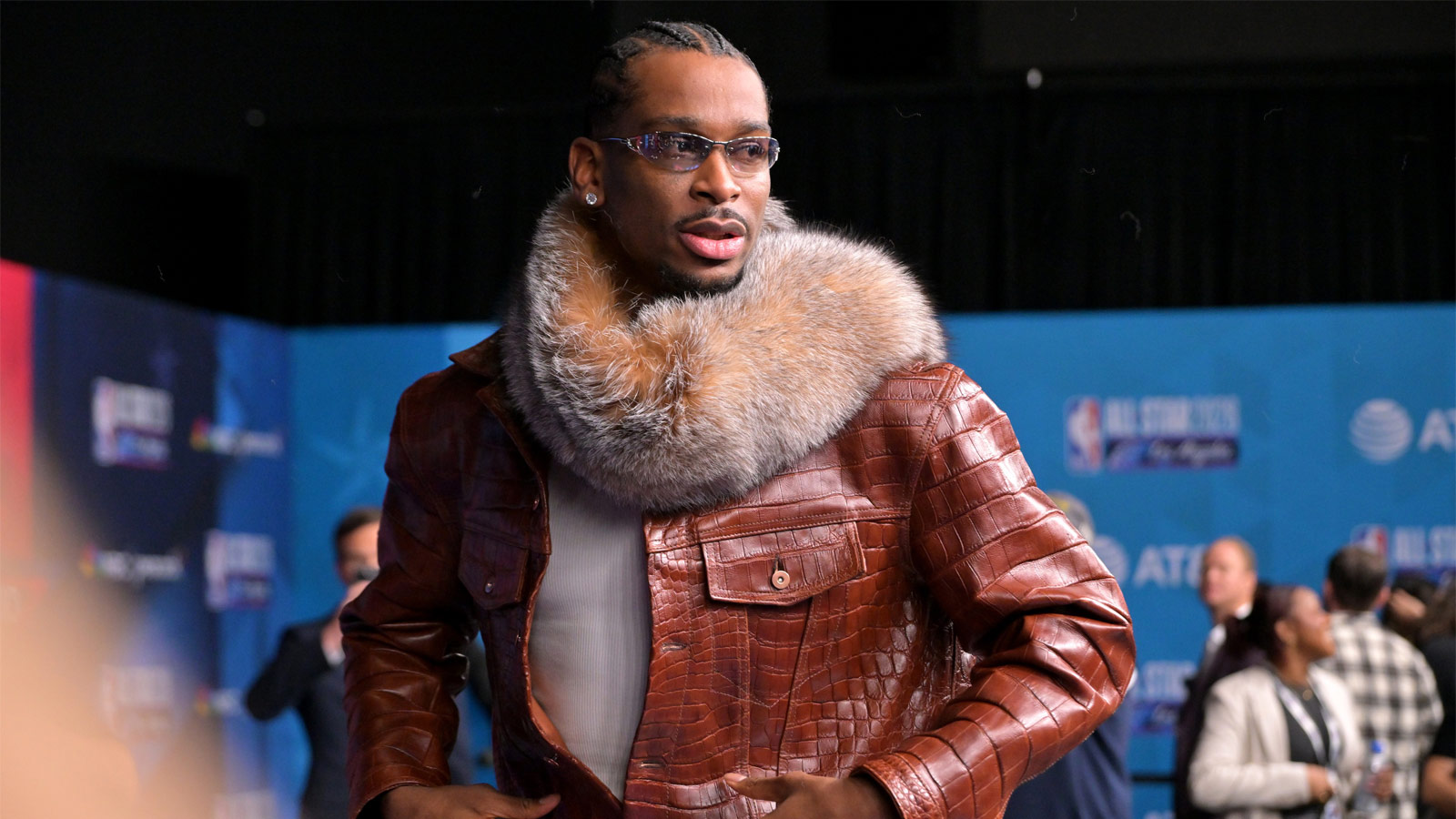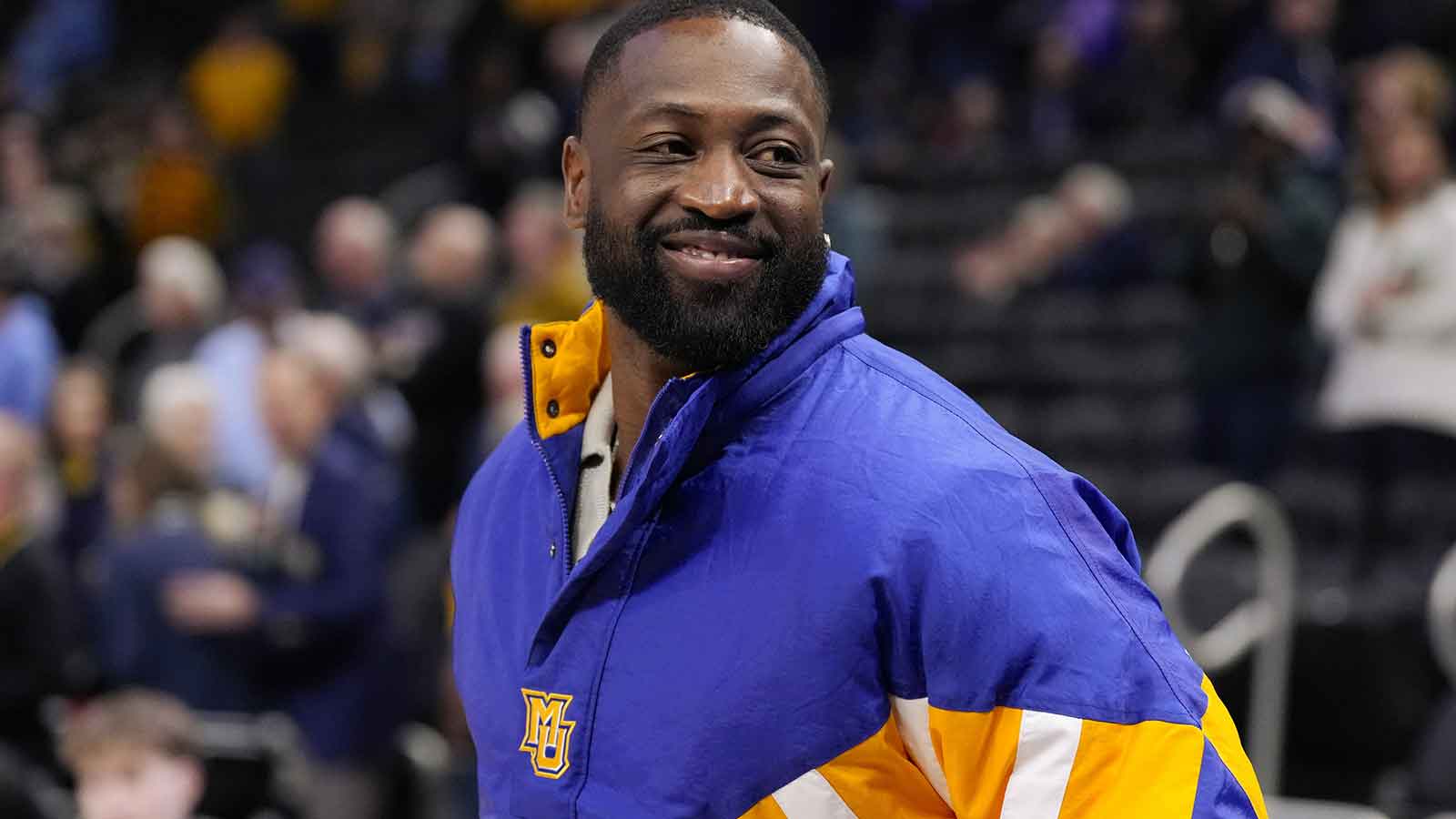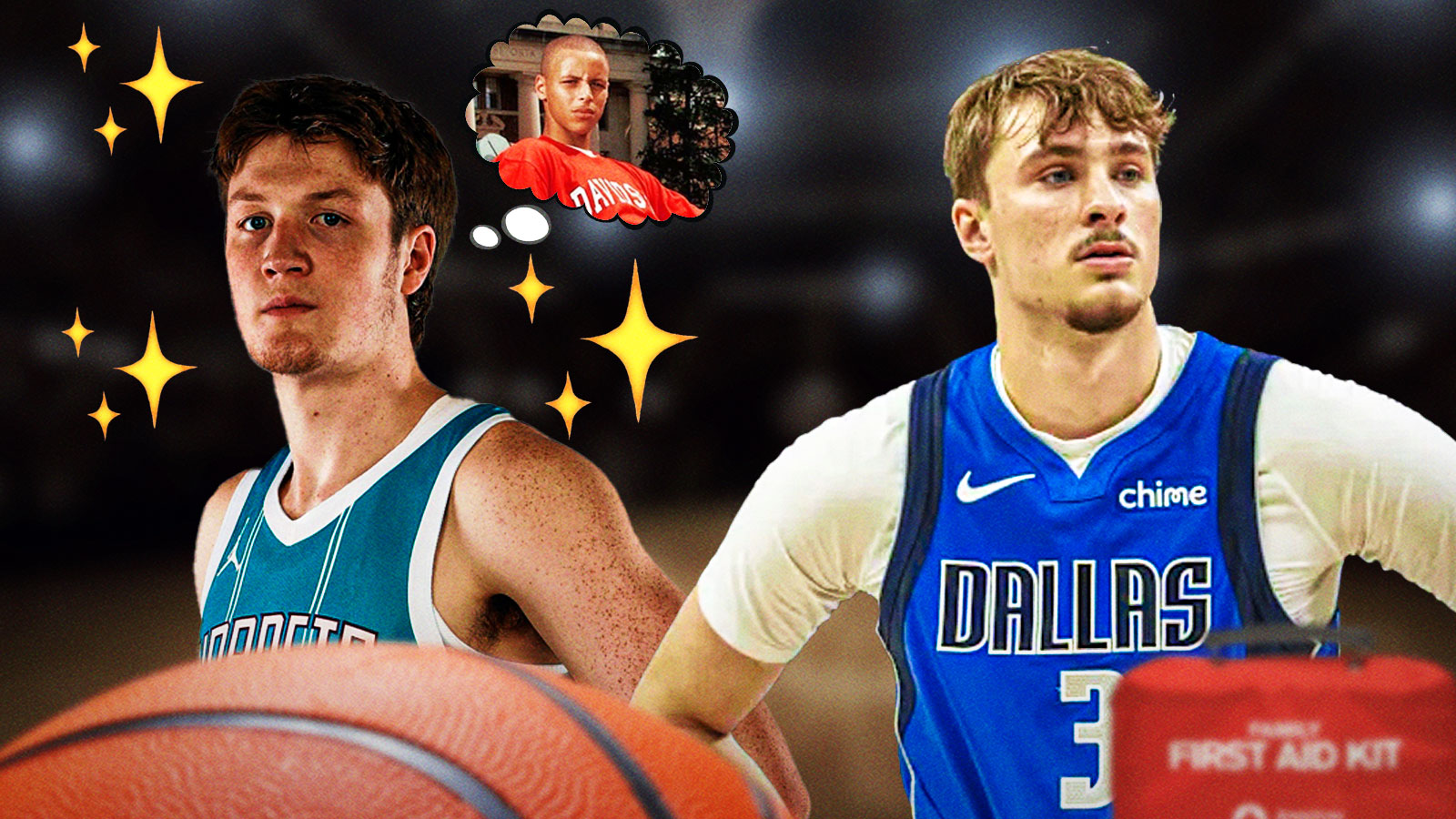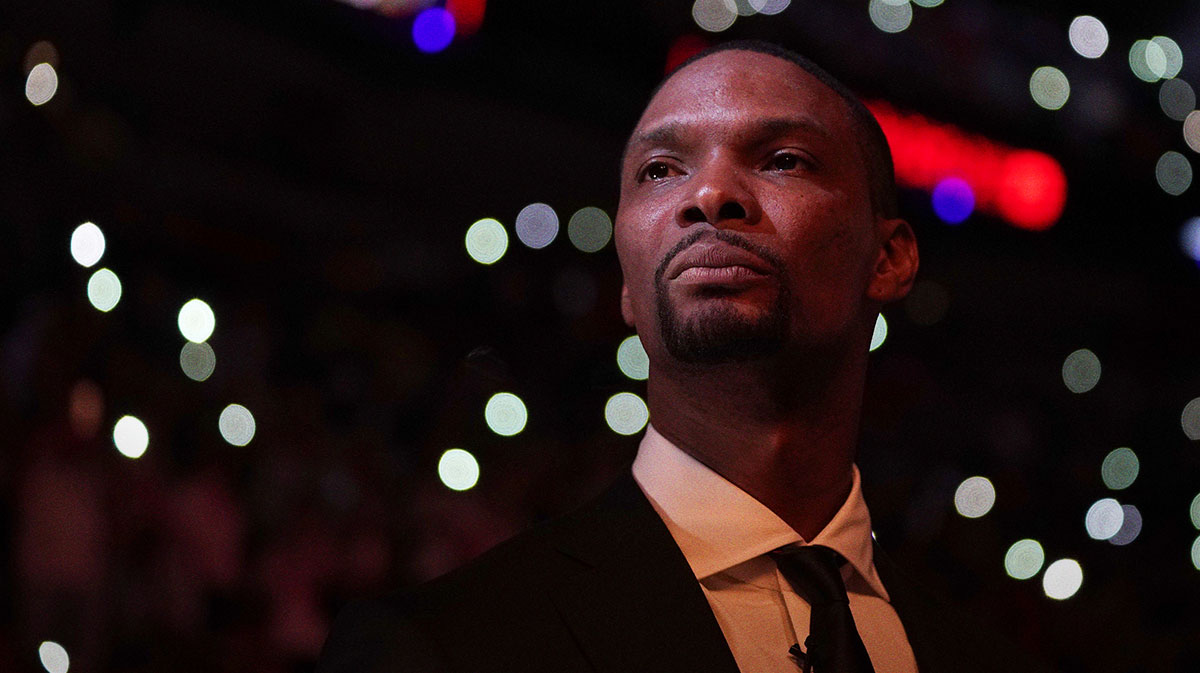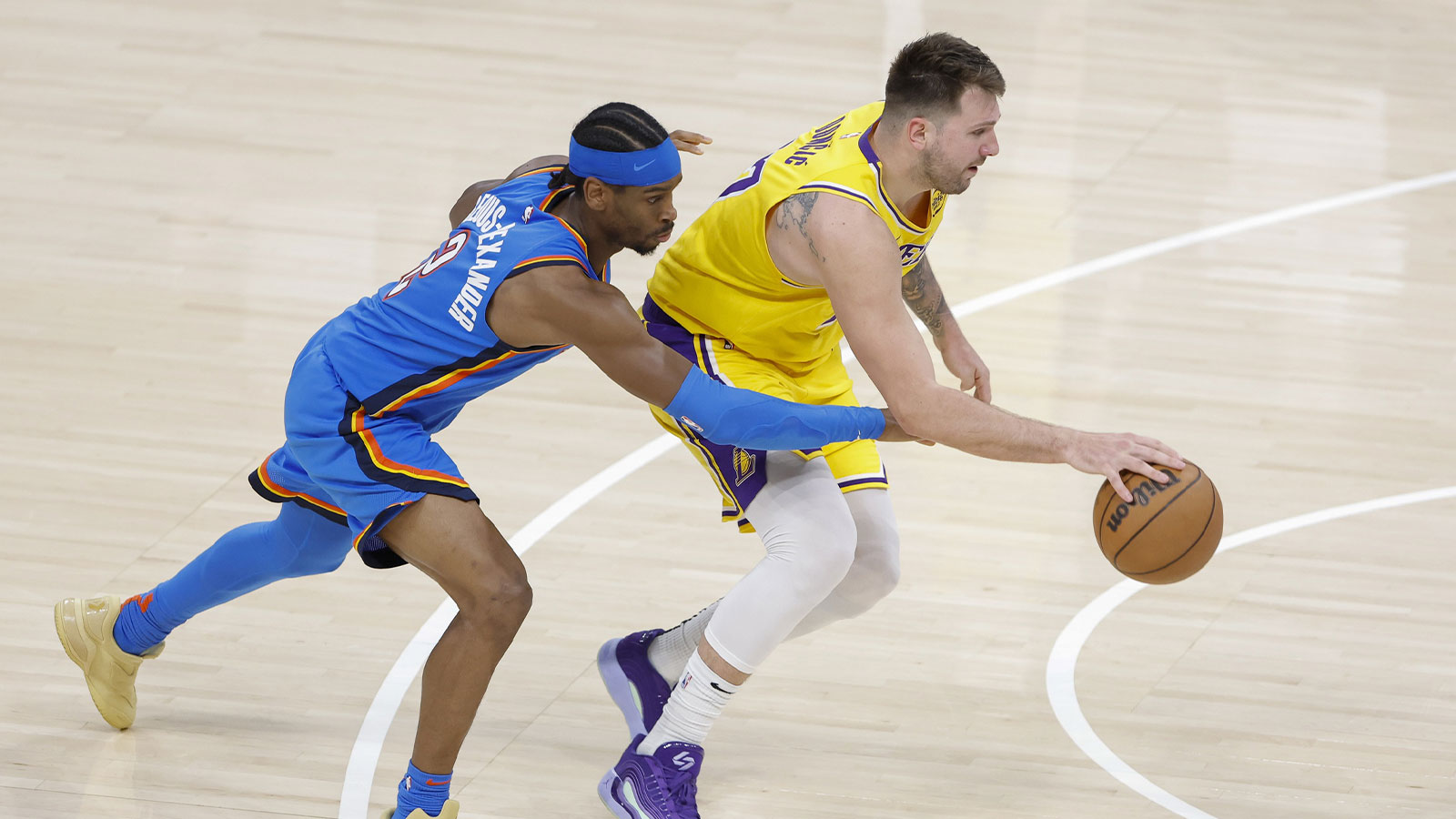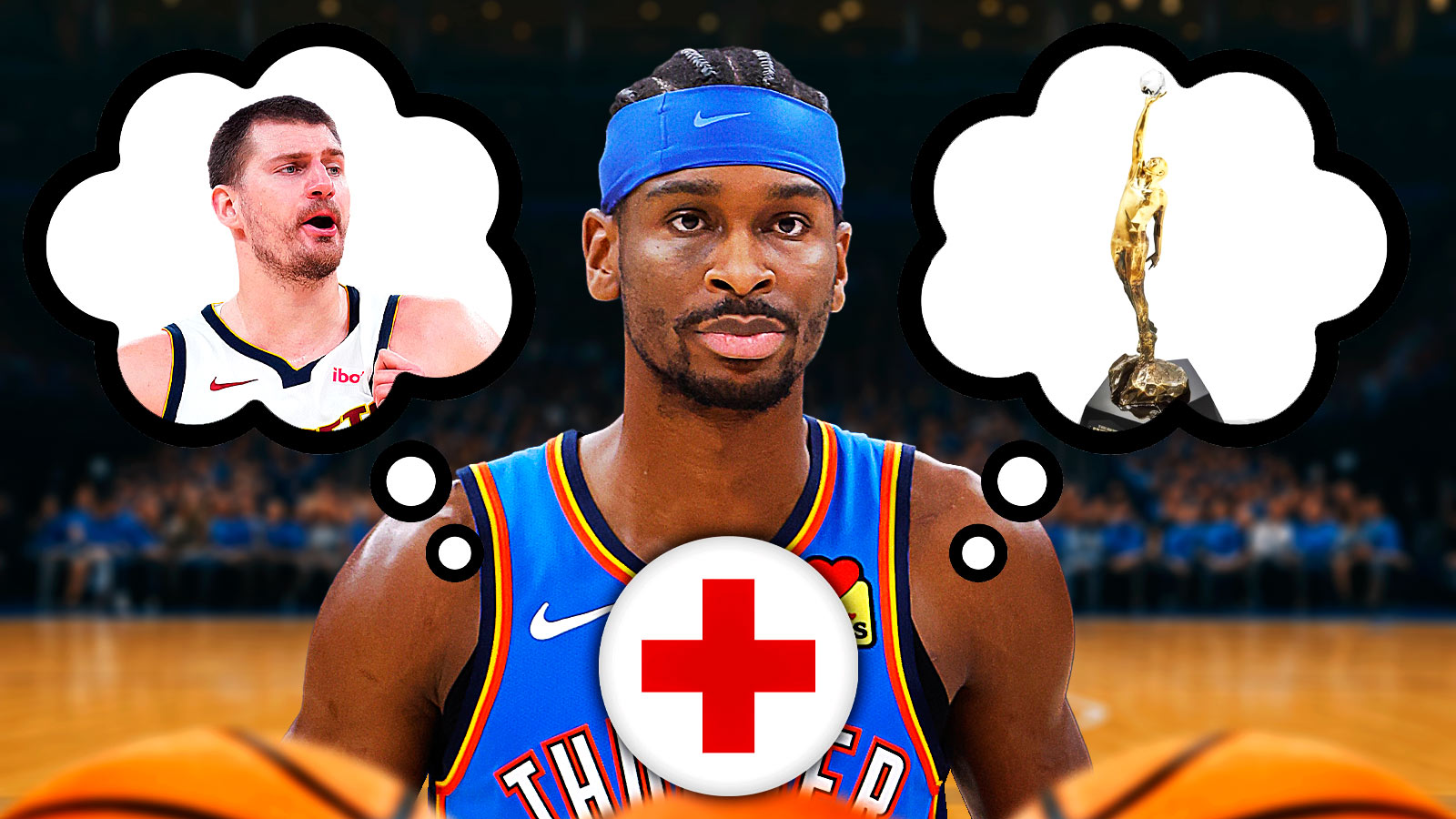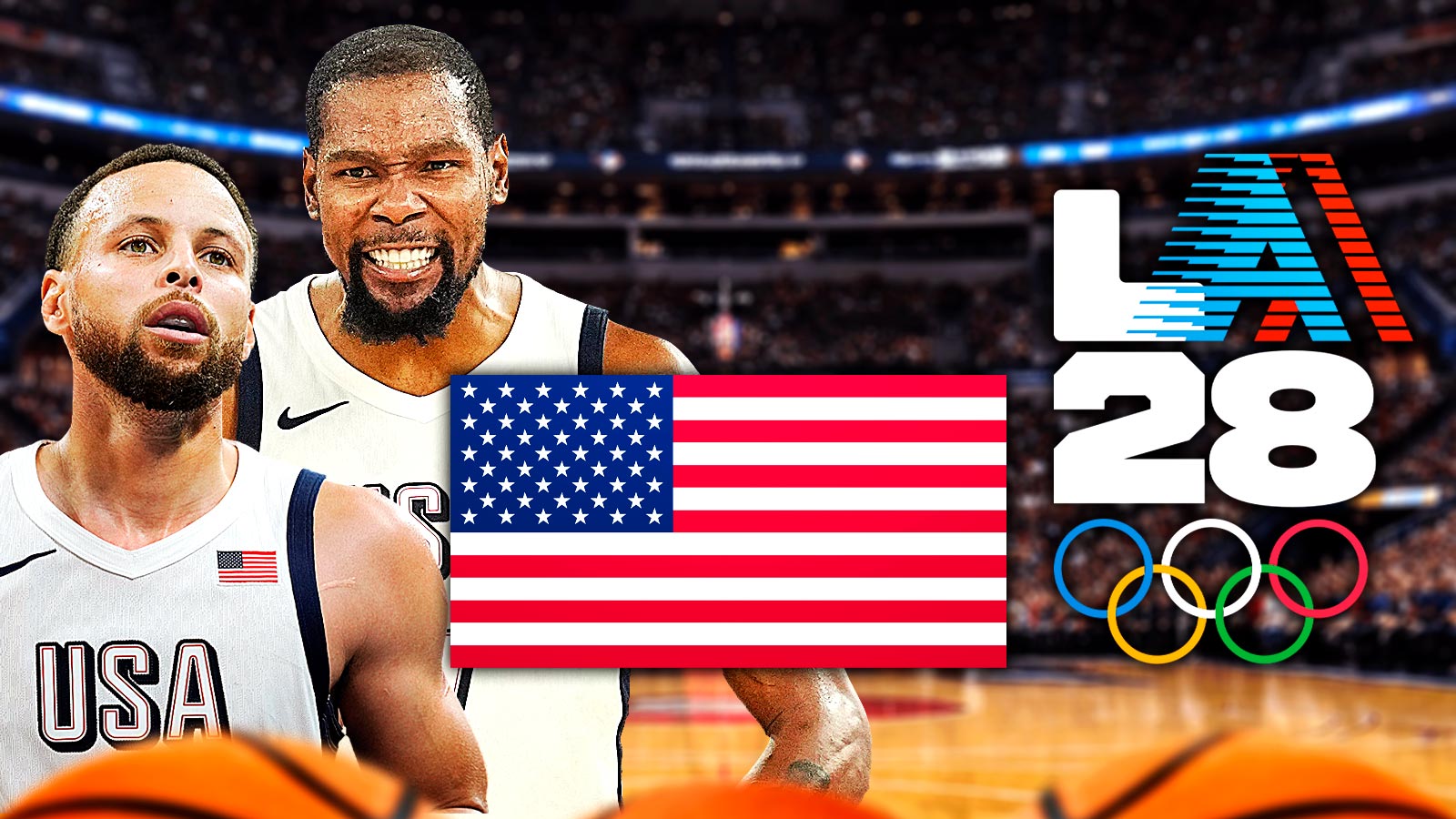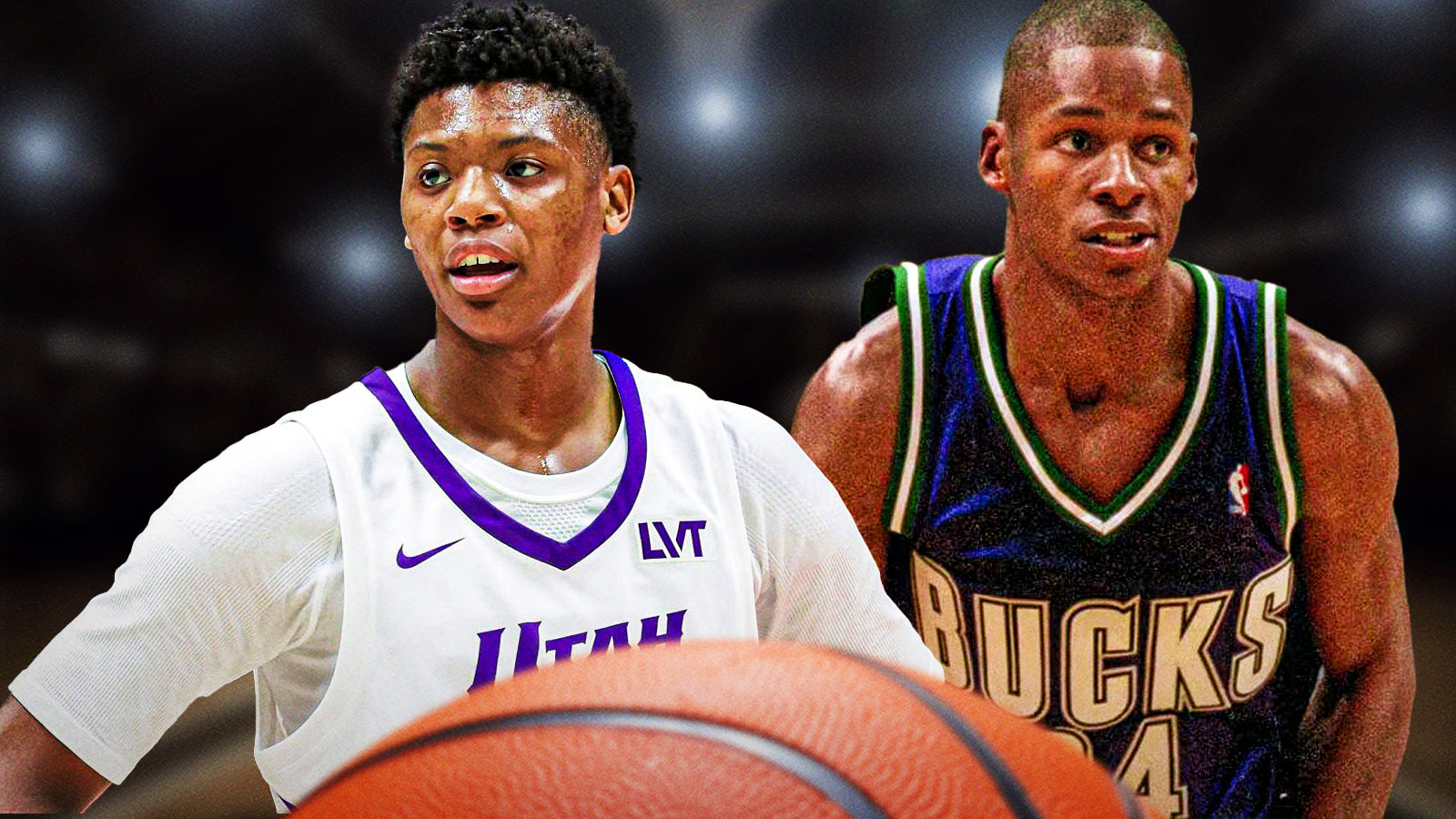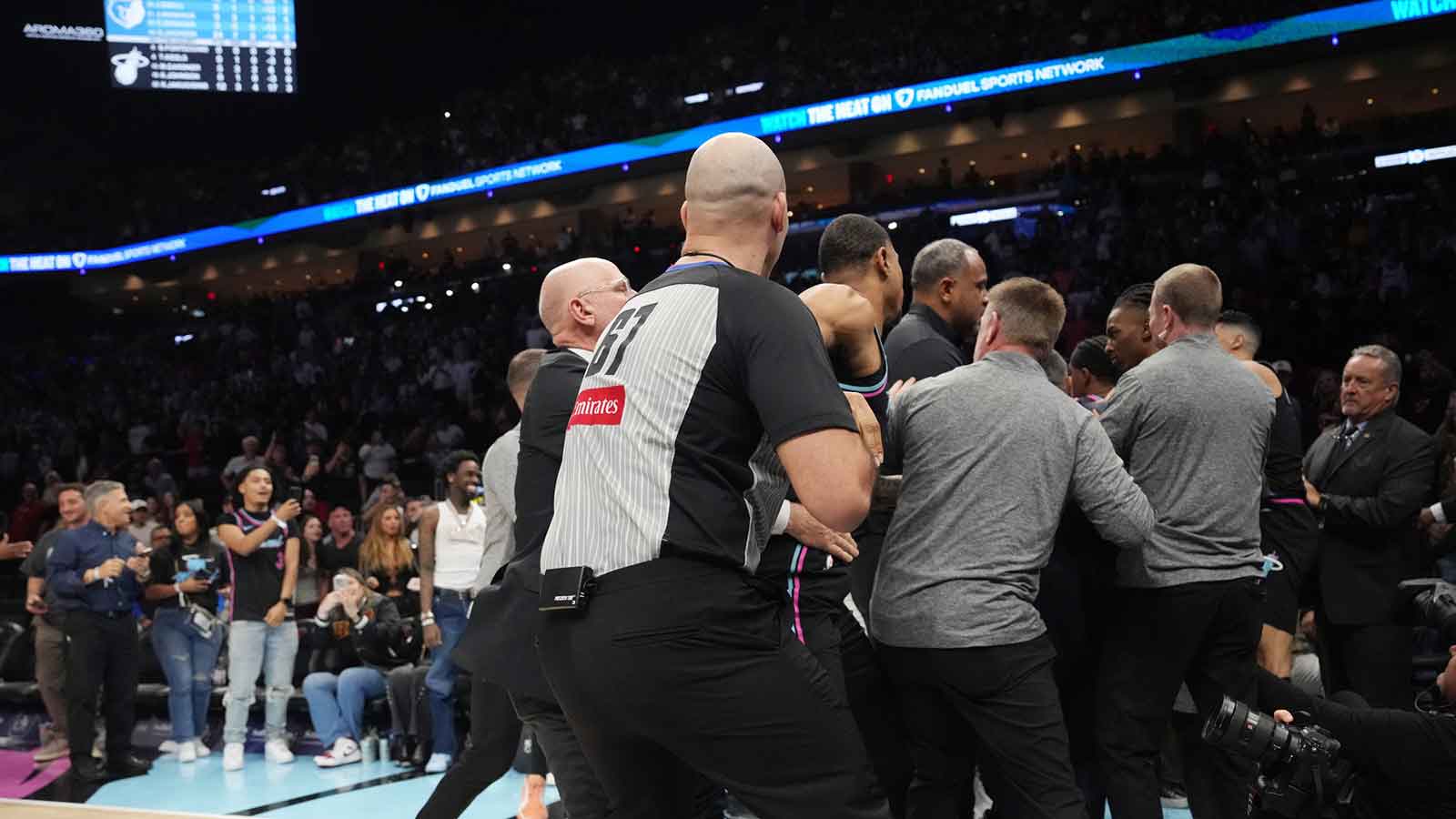The NBA Finals MVP award, renamed as the Bill Russell NBA Finals Most Valuable Player Award in 2009, is given to the player who receives the most number of votes by a panel. More often than not, it's given to the best player who helped his team win the NBA championship.
Throughout the years, we've witnessed several NBA legends who further cemented their legacies with a Finals MVP Award. But while the Finals MVP is given to the best player of a championship team, the result isn't always what everyone anticipated. Let's take a look at the 10 most unexpected NBA Finals MVPs.
10. Magic Johnson – 1980
Finals stats: 21.5 points, 11.2 rebounds, 8.7 assists, 57% FG
On this date in 1980, Magic Johnson scores 42 points in Game 6 of the NBA Finals, clinching the Lakers’ NBA title over the 76ers.
The 20-year-old Johnson received the Finals MVP.
He is still the youngest player with a 40-point game in the NBA Finals, by a margin of 3 years. pic.twitter.com/fVEjC9cIdq
— ESPN Stats & Info (@ESPNStatsInfo) May 16, 2022
Magic Johnson is undoubtedly a great player and the centerpiece of the Showtime Lakers during the 80s. But in the 1980 NBA Finals, there's no question that Kareem Abdul-Jabbar also had a case to win the award.
Abdul-Jabbar averaged 33.4 points, 13.6 rebounds, and 4.6 blocks per game and set the tone of the series on the defensive end. However, he injured his ankle near the end of Game 5 and was unable to play Game 6. Johnson switched to center and had 42 points and 15 rebounds in Abdul-Jabbar's absence to lead the Lakers to the series-clinching win and earn the MVP.
9. Tony Parker – 2007
Finals stats: 24.5 points, 5.0 rebounds, 3.3 assists, 57% FG, 57% 3P%
Our 2007 NBA Finals MVP 🏆#WallpaperWednesday | @HEB | #ad pic.twitter.com/YEVKnfBvRB
— San Antonio Spurs (@spurs) March 1, 2023
The 2007 NBA Finals saw the San Antonio Spurs sweep LeBron James and the Cleveland Cavaliers. While there were so many heroes for the Spurs, it was Tony Parker who was selected to win the award.
Although he was the Spurs' leading scorer in the series, a lot of basketball fans expected Tim Duncan to be crowned the Finals MVP. Duncan made an impact on both ends of the floor by averaging 18.3 points, 11.5 rebounds, and 2.3 blocks per game.
8. Dennis Johnson – 1979
Finals stats: 22.6 points, 6.0 rebounds, 6.0 assists, 1.8 steals, 2.2 blocks, 46% FG
On this date in 1979, on the back of Finals MVP Dennis Johnson, the Seattle Supersonics win their first and only NBA Championship.
— Honest☘️Larry (@HonestLarry1) June 1, 2023
Gus Williams pretty much led the Seattle Supersonics in scoring, as they defeated the Washington Bullets in five games, averaging 29.0 points, 3.6 rebounds, and 3.6 assists per game on 50% shooting.
However, the Finals MVP award didn't go to the top scorer of the series, which was quite unusual. Instead, the award went to Supersonics guard Dennis Johnson. Johnson's tenacious defense set the tone of the series.
7. Wes Unseld – 1978
Finals stats: 9.0 points, 11.7 rebounds, 3.9 assists, 52% FG
Wes Unseld:
NBA champion (1978)
NBA Finals MVP (1978)
NBA Most Valuable Player (1969)
5× All-Star (1969, 1971–1973, 1975)
All-NBA First Team (1969)
NBA Rookie of the Year (1969) 🏀— TodayInSports (@TodayInSportsCo) June 2, 2020
A year prior, it was the Bullets who won the NBA championship. While there were so many heroes in the NBA Finals, Wes Unseld managed to snatch the Finals MVP Award despite being the seventh-leading scorer and second-best rebounder for the Bullets in the series.
However, he did make the game-sealing free throws to clinch the championship. The Bullets did have Elvin Hayes, who averaged 20.7 points and 11.9 rebounds per game. Four-time All-Star Bob Dandridge also gave a good account of himself by averaging 20.4 points per game.
6. Joe Dumars – 1989
Finals stats: 27.3 points, 1.8 rebounds, 6.0 assists, 58% FG
Watch 1989 NBA Finals MVP, Joe Dumars, in action as he led the @DetroitPistons over the Lakers to win their first title! #NBABDAY #NBAVault pic.twitter.com/y2Gx5dTeP7
— NBA History (@NBAHistory) May 24, 2020
It was pretty much crystal clear that Joe Dumars was the second option of the Bad Boy Detroit Pistons. As a result, it came as a slight surprise when he was crowned Finals MVP in 1989.
While he did lead the team in scoring, many were convinced that this was Isiah Thomas' squad. Thomas also averaged a respectable 21.3 points and 7.3 assists per game in the 1989 NBA Finals.
5. Cedric Maxwell – 1981
Finals stats: 17.9 points, 9.5 rebounds per game, 2.8 assists, 57% FG
On this day in 1981,
Celtics win their 14th NBA Championship. @cedricmaxwell81 was named Finals MVP averaging:
17.7ppg and 9.5rpgLarry averaged 15/15/7 in the series as a second year player. pic.twitter.com/PCMdz7S83T
— Jta — KC (9-3) 🎒 (@BlackoutJta) May 13, 2020
The Boston Celtics were pretty much a dynasty in the 1980s, headlined by Larry Bird. But in 1981, it came as a surprise when Cedric Maxwell was crowned the Finals MVP after the Celtics defeated the Los Angeles Lakers in six games.
While Maxwell did lead the Celtics in scoring, Bird also had a monster series. It can be argued that the award should've went to Bird, who averaged 15.3 points, 15.3 rebounds, and 7.0 assists per game. To make matters more interesting, Maxwell was never an All-Star in his NBA career.
4. Chauncey Billups – 2004
Finals stats: 21.0 points, 3.2 rebounds, 5.2 assists, and 1.2 steals per game, 51% FG, 47% 3p%
2004 @NBA Finals MVP Finals Performance: Chauncey Billups averaged 21 points on 51 percent shooting vs @Lakers pic.twitter.com/hnuwgG6lMg
— NBA History (@NBAHistory) February 10, 2016
Speaking of non-All-Stars winning the Finals MVP, Billups did surprise everyone when he was crowned the 2004 Finals MVP after the Pistons upset the Lakers in five games. Other heroes that had a stronger case to win the award was Rip Hamilton, who led the team in scoring with 21.4 points per outing.
On the other hand, Ben Wallace's 10.8 points and 13.6 rebounds per game while containing Shaquille O'Neal also made a solid argument. It was two years after Billups won Finals MVP when he was named an All-Star.
3. Kawhi Leonard – 2014
Finals stats: 17.8 points, 6.4 rebounds, 2.0 assists, 61% FG, 58% 3P%
Kawhi Leonard, the 2014 #NBAFinals MVP! pic.twitter.com/7LGfvLpyz8
— NBA (@NBA) June 16, 2014
The 2014 NBA Finals saw the Spurs put an end to the Miami Heat's Big Three era. When it came to the Finals MVP race, there's no doubt that the bevy of heroes made it hard to crown one. With Tim Duncan, Tony Parker, and Manu Ginobili playing their best, a lot expected it would be one of the three certified Hall of Famers.
But instead, the award went to a young Kawhi Leonard, becoming the youngest player to win the award. Around that time, Leonard had yet to be an All-Star. However, his all-around game while defending LeBron James earned him Finals MVP honors.
2. Andre Iguodala – 2015
Finals stats: 16.3 points, 5.8 rebounds, 4.0 assists, 1.8 steals, 52% FG 40% 3P%
In 2015, Andre Iguodala won Finals MVP, with seven of 11 votes. LeBron James got four votes (including mine). Stephen Curry got zero.
It’s still a sore point for Curry fans.
So I asked my fellow voters: Did we get it right? Any second thoughts?https://t.co/AW9kstBYkR
— Howard Beck (@HowardBeck) June 12, 2022
The Golden State Warriors captured the 2015 NBA championship at the expense of LeBron James and the Cleveland Cavaliers. While it was Stephen Curry who provided the offense, the Finals award instead went to Andre Iguodala.
Iguodala did a superb job in limiting James. While Iguodala is credited for his defense, Curry does make a case after leading the team with averages of 26.0 points, 5.2 rebounds, and 6.3 assists on 39% shooting from deep.
1. Jerry West – 1969
Finals stats: 37.9 points, 4.7 rebounds, 7.4 assists, 49% FG
That was the #NBAFinals (1969) Jerry West won Finals MVP honors even though the @Lakers lost to the @Celtics pic.twitter.com/pUTSSvHDvu
— NBA History (@NBAHistory) June 15, 2015
Although Jerry West had a great performance in the 1969 NBA Finals by averaging more than 30 points per game, winning the award was a surprise given that the Lakers didn't even win the NBA championship. It's worth noting that the 1969 Finals MVP was the inaugural award and the only time in NBA history when a player from a losing team won the award.

